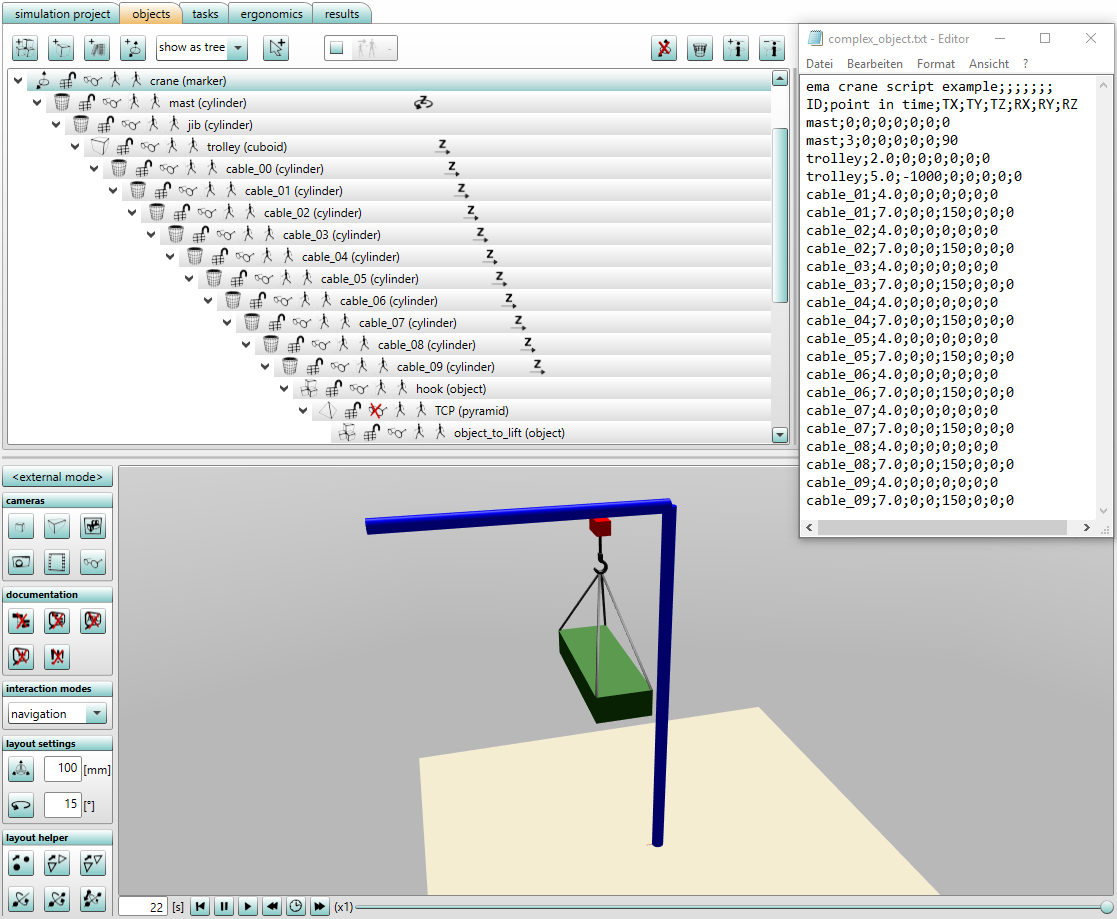This object task can drive kinematic chains through forward kinematics using a script. This task requires an object with a hierarchical substructure, an assigned behavior, and for names of objects within the structure to be unique. The resulting movement, which is defined by the script (see figure Example of performing complex object FK) depends additionally on the task parameter Reference system.
Parameter |
Type |
Mand. |
Meaning |
|---|---|---|---|
Motion data file |
File |
yes |
A text or csv file that contains the motion data. The structure of the file should be as follows: ▪Start with two table header lines. First line can be used as a comment line. Second line should contain the following eight column identifiers ID; point in time TX; TY; TZ; RX; RY; RZ. The movement data should be separated by a semicolon ▪The column identifiers are declared as follows: ▪ID - the unique name of a subobject of the above-mentioned object ▪point in time - the date for subsequent position and orientation of the subobject mentioned in the line above ▪TX;TY;TZ position of the subobject [mm] ▪RX;RY;RZ rotation of the subobject [°] |
Reference system |
Selection |
no |
A drop-down parameter for switching between the global coordinate systems, the coordinate system of the parent object (local) and the one of the object itself. ▪global-movement: movement relative to axes of global coordinate system ▪local-movement: movement relative to axes of local coordinate system of the parent object ▪relative-movement: movement relative to axes of local coordinate system of the object itself |

Figure 205: Example of performing complex